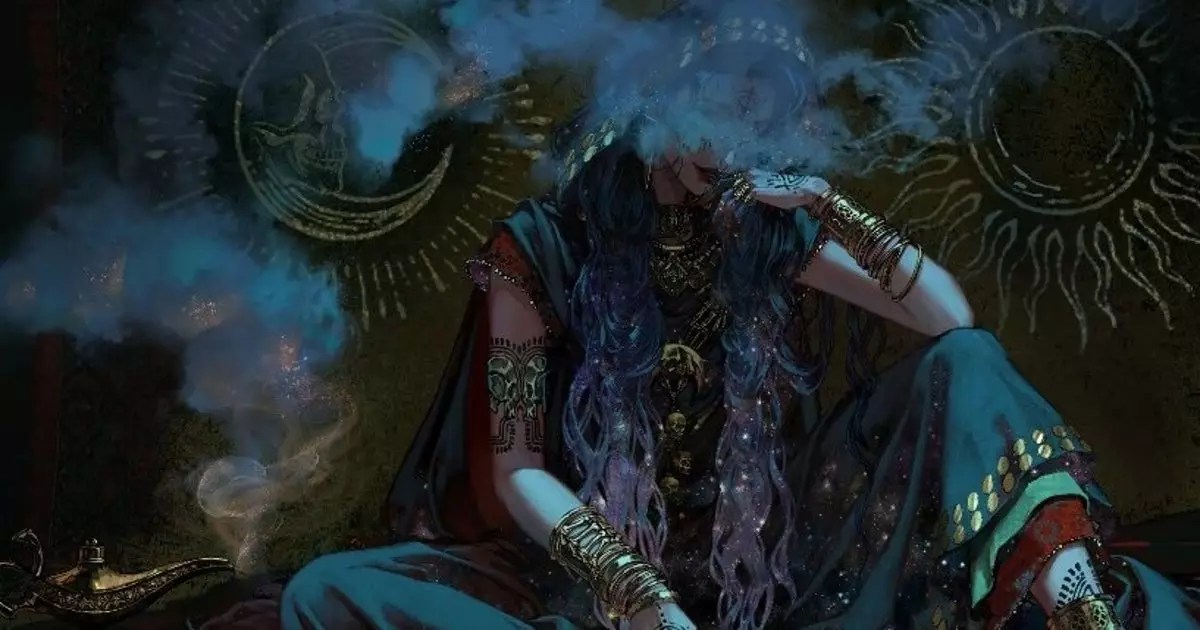At first glance, Sultan’s Game presents itself as an indecipherable puzzle wrapped in a rich fabric of narrative and visceral art. With my curiosity piqued following a brief encounter with its demo on Steam—a session spent shuffling its unique card mechanics and navigating moral dilemmas of a sultan’s reign—I find myself compelled to immerse deeper. The game eludes easy comprehension, revealing only fragments of its complex strategy and intricacies with each passing hour. My early impressions, however, suggest a fusion of captivating themes and daunting mechanics that merit further exploration.
One of the most immediate and striking features of Sultan’s Game is its art style, which crafts a visually stunning experience, reminiscent of a cross between the vibrant design of *Hades* and the ethereal elegance reminiscent of Yoshitaka Amano’s interpretations of classic tales. The aesthetic choices elevate the gameplay, drawing players into a fantasy world steeped in themes of carnality, treachery, and opulence. Accompanying this enchanting visual presentation is a soundtrack that intricately sets the scene, underscoring the tension and dark whimsy pervading the experience.
In this strange realm, players assume the role of a courtier under the sultan, whose character is anything but noble. The narrative begins with a seemingly mundane premise: the sultan, bored with the excesses of his power, is intrigued by a magician and a peculiar deck of cards. Each card systematizes actions—like indulging in vice, orchestrating bloodshed, conquering, or living extravagantly—yet also necessitates equal-value targets from the court itself. It is here that moral quandaries emerge, placing the player in a position where relationships must be destroyed to achieve triumph, reminiscent of the unsettling, utilitarian decisions seen in games like *Frostpunk*.
As you traverse the opening phase of the game, absorbing the reality that courtiers are mere resources becomes unavoidable. This efficient tyranny lingers in the background, accentuated by the sultan’s cruel yet fascinating demeanor. Despite this approach’s darkness, it offers a spirited critique of power structures and interpersonal dynamics, compelling the player to navigate these treacherous waters with cunning and strategy.
Once the tutorial phase concludes, the game shifts perspective, placing the player in control of their own character, a courtier with access to an entourage and a lavish estate. Navigating a richly embroidered map, players engage in worker placement mechanics to resolve the event tied to their drawn card, all while racing against the clock—fail to do so within seven days, and the sultan will execute you. This looming sense of urgency injects adrenaline into the experience, enhancing the stakes of each decision made.
The interplay of character attributes, like wisdom and social influence, adds an additional layer of depth. For instance, leveraging your wife’s wisdom stat to watch over the estate while you navigate the sultan’s court creates an intricate web of relationships and resource management. The complexity escalates, revealing not merely a game of chance but a strategic endeavor that necessitates foresight and shrewd planning.
At its heart, Sultan’s Game thrives on the allure of choice and the consequences that follow. Each decision impacts not only your character’s journey but also shapes your reputation and influence within the city. Balancing your actions with the necessity to resolve cards and gather resources contributes to a richly layered narrative that unfolds organically through choices. Empowering you to draft strategies and execute them under pressure fosters a sense of agency while simultaneously invoking the dread of potential failure.
The myriad options and paths available create an engaging albeit overwhelming sense of “lot-ness.” Players may find the volume of mechanics daunting, but therein lies the thrill—mastering what seems to be a continuous expansion of possibilities ensures that no two playthroughs will ever feel identical. The wonderful juxtaposition of darkness and vibrancy within these narratives ensures a gripping experience.
Sultan’s Game is an intricate blend of dark thematic elements and engaging gameplay mechanics, designed for those brave enough to delve into its complex world. While imperfections and initial difficulties may dissuade some, the tantalizing depth and peculiar charm provide a worthwhile investment for players willing to navigate its maze of intrigue. Those intrigued by more sinister explorations of power, morality, and strategy may find themselves captivated as they uncover the multidimensional layers woven into its fabric—truly one of the most compelling experiences available in the modern gaming landscape.


Leave a Reply